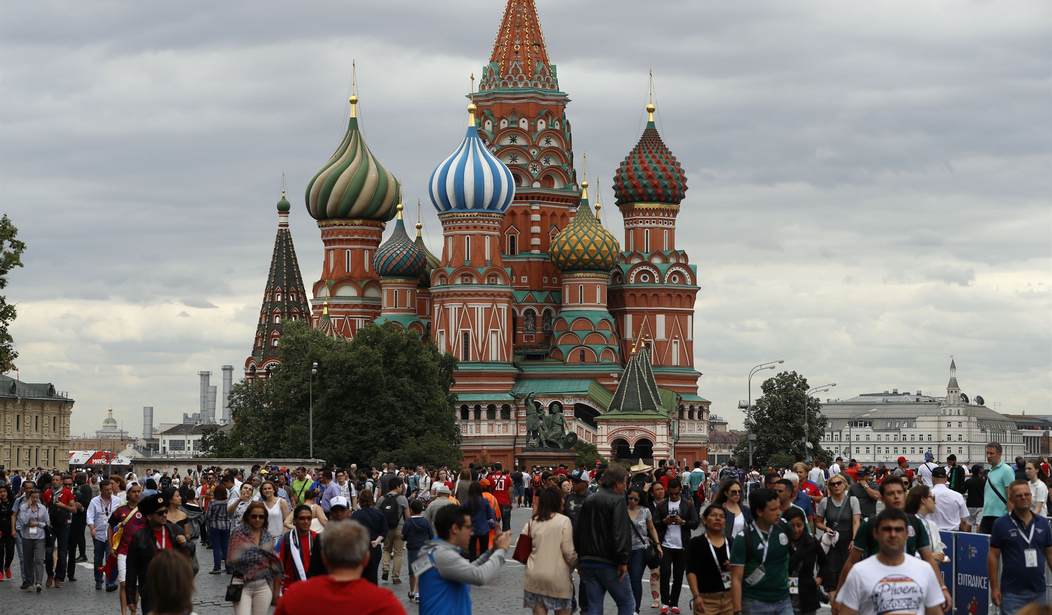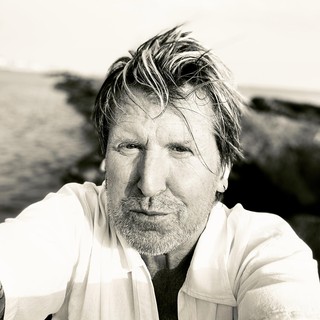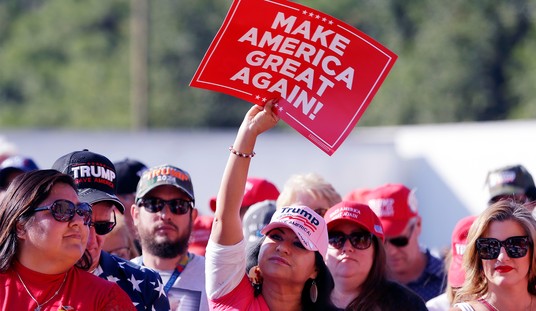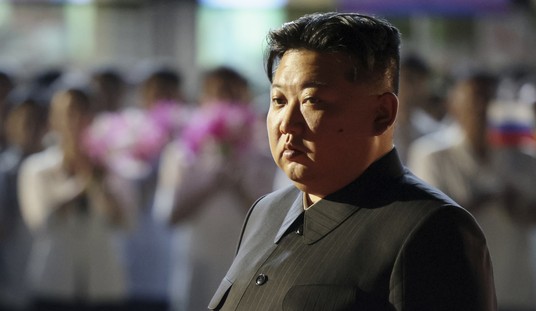Remember back in March when the national press, ever keen to tout whatever fight Democratic leaders care to pick with American businesses, was heaping outrage on any company that had commercial operations in Russia?
The pre-fabricated hook for that drumbeat was a graded report card made by Yale professor Jeffery Sonnenfeld and his students, tracking companies that weren’t pulling up stakes and leaving Russia as swiftly as he preferred. Democratic senators, naturally, were glad to echo the good professor’s indignation.
Sonnenfeld is a routine dial-a-quote for reporters looking to bash business, and he’s on the air more often than John Daly at the Cracker Barrel buffet. But unmentioned in all that bloviation was the severe consequences that would result when companies simply switched off the lights — including jail for those Russian executives, threats to employees, investments up in smoke, and entirely innocent customers and counter-parties made bereft.
PepsiCo, for instance, is one of the largest producers of infant formula and specialized dairy products in Russia — but the professor and his media pals had no advice for the parents who rely on those goods. Nestlè makes animal and pet foods widely sold throughout that country, but the moral quandary of shutting that supply bothered the press, not in the least. Every one of the hundreds of companies on Sonnenfeld’s list has mom-and-pop investors depending on those companies for their savings and retirement — but apparently, the professor’s moral preening was more urgent.
Many of those companies, unwilling to muster some public relations backbone, caved quickly to the smear tactics and beat a hasty exit. Predictably, they were put in the media dunk tank anyway and then suffered all the downside harms too.
According to a report published this week by a leading anti-Russian NGO, “at least 47 multinational companies with a presence in Russia, including gas giant BP and aircraft behemoth Boeing, are at risk of having key assets seized by the Russian government.” Taken together, those firms represent 24 of the largest 200 companies in the world and they are facing “a tsunami of expropriations or blackmailed concessions over the next couple of months,” the report concluded.
No company took more rhetorical abuse than the Left’s favorite corporate punching bag, Koch Industries. Here’s the Washington Post’s Dana Milbank getting in on the hit parade:
Then there’s the worst of the worst, in Sonnenfeld’s lowest category — those corporations “Digging In” and refusing to reduce activities in Russia. Only eight U.S. companies have this dubious distinction, Sonnenfeld’s team tells me…[including] that recidivist corporate offender, Koch Industries.
Unsurprisingly, this triggered elected Democrats’ collective Spidey sense and by March, Chuck Schumer was taking to the Senate floor to condemn Koch Industries by name in a couple of demagogic and fact-challenged speeches. “Koch Industries is shamefully continuing to do business in Putin’s Russia and putting their profits ahead of defending democracy. The noxious stench of Trump still hangs over Koch Industries,” read a joint statement released by Schumer and Sen. Ron Wyden (D-Ore.).
Of course, his outrage was selective. Just a few minutes of research reveals that at the time of his sanctimonious speech a slew of Democratic donors was still operating inside Russia, from Huntsman Corp to Mondelez-Nabisco, to Microsoft, to Goldman Sachs.
Yet last week the president and COO of Koch Industries put out a straightforward statement announcing the successful unwinding of their last major Russia-based business, two glass-manufacturing facilities that employ approximately 600 people.
By all appearances, the work to unwind the business started shortly after Russia’s outrageous invasion of Ukraine and proceeded responsibly in a way that protected both their assets and, more importantly, their employees inside Russia.
But the same people in the corporate press and political class, who for decades have contorted facts and concocted ludicrous conspiracy theories that posit Koch as the instigator of every mystery and intrigue short of the Loch Ness monster, barely uttered a peep.
The Koch bashing satisfied the daily two-minutes-hate needs of the Democratic party, but it should have been clear to any good-faith observer with two brain cells that the issue was more nuanced than the good guys/bad guys narrative set up by the press and the emoji-brigade.
For one thing, distinctions need to be made between things like strategically and militarily important goods and services, which obviously should have gotten out of Russia ASAP; ordinary consumer goods, which had a far better case for thoughtful and deliberate unwinding; and essentials like food and medicine, for which the ethics of a full boycott are thorny at best.
Secondly, a fair look at companies doing business in Russia would have taken into consideration what would happen to that company’s assets and, more importantly, its employees, if they left. Would their capital be expropriated? Would pirating their IP be officially blessed by the regime? Would their managers be intimidated, questioned, or arrested?
Shell, which Sonnenfeld gave an “A” rating on his list, as well as those that received a “B” grade like Intel, Samsung, Nissan, and Ford, are now all at risk of having their assets seized for their hasty decision to not ensure their facilities were secure. Shell also reported that its decision to exit would cost shareholders $4 to $5 billion in the first quarter alone. What happens to their Russian executives and employees if Putin’s thugs make good on their threats is both unknown and disturbing to imagine.
Even the companies that rushed to virtue-signal by announcing exits in March have found the process much more difficult than they portrayed to the media. The fashion retailer H&M announced it was shutting down in Russia but had to reopen stores for a “winding down process” to sell off its leftover inventory.
But MSM outlets like CNBC and the New York Times, which were quick to amplify Sonnenfeld’s enemies list, never bothered to go that deep. And unsurprisingly, they haven’t seen fit to update their audiences on the careful and responsible exits of companies like Koch.









Join the conversation as a VIP Member